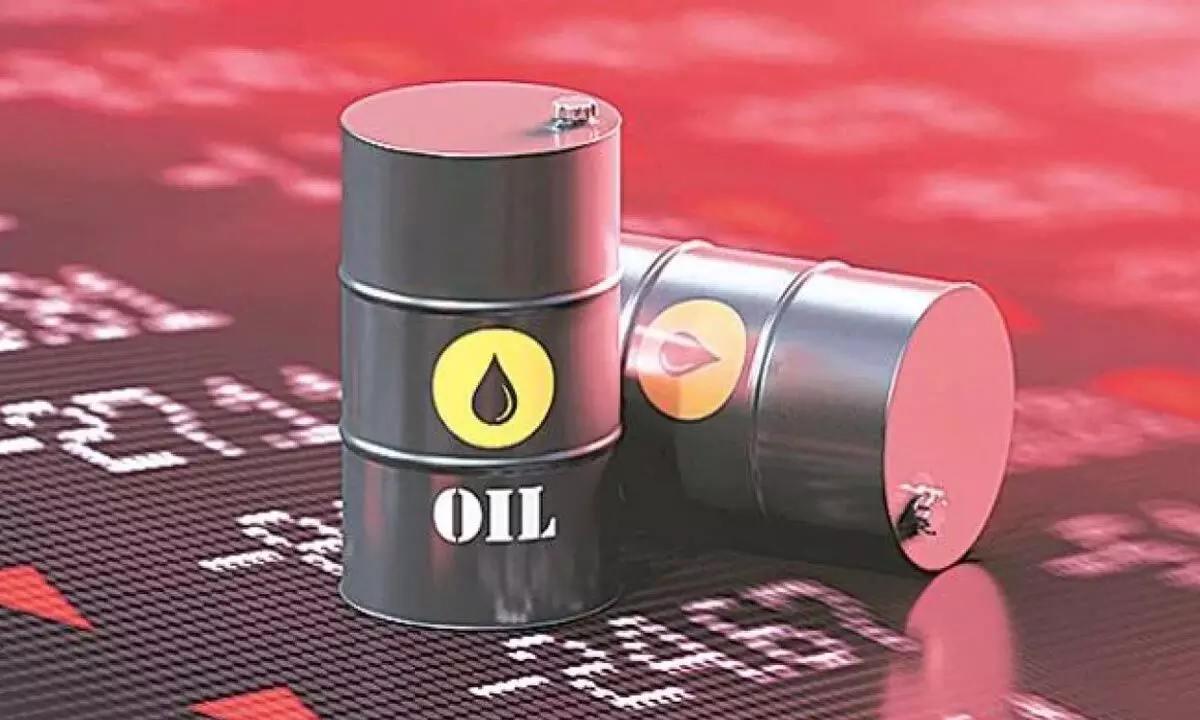Now, windfall gains tax at zero
Govt slashes windfall gains tax on domestic crude oil to nil from Rs4,100/tone effective from May 16; The decision follows softening of global oil prices from over $80/bbl to $75
image for illustrative purpose

• Windfall tax rates reviewed every fortnight based on oil prices
• ICRA expects govt collections at Rs1,500 cr for FY24
• Tax revenue on production, export of petroleum products at Rs40k cr in FY23
New Delhi: The government has cut windfall gains tax on domestically-produced crude oil to nil, while continuing the rate at zero on the export of diesel and ATF.
The government has slashed the special additional excise duty (SAED) on crude oil produced by companies such as Oil and Natural Gas Corporation (ONGC) to nil from Rs 4,100 per tonne with effect from Tuesday, an official order dated May 15 said.
This is the second time that the levy, which was introduced in July last year in the form of a Cess to tax supernormal gains of oil producers and fuel exporters, has been cut to nil for domestically-produced oil. The tax was cut to nil in early April, but was brought back in the second half of that month with a Rs6,400 per tonne levy. The tax on the export of diesel, which was cut to zero on April 4, continues to stay at that level.
Similarly, the levy on the export of jet fuel (ATF), which was cut to nil from March 4, stays the same. The cut in windfall gains tax on domestically-produced crude oil follows softening of international oil prices - from over $80 per barrel to under $75.
Prashant Vasisht, vice-president and co-group head (corporate ratings), ICRA Ltd, said: “Crude oil prices have been on a downward trend, erasing all the gains that were witnessed post the OPEC+ production cuts. The decline has been largely owing to the recessionary fears in large economies of the world. Moreover, the SAED on the export of petroleum products remains nil.”
At these rates, ICRA expects government collections to be Rs1,500 crore for FY2024 (April 2023 to March 2024), he said. The tax rates are reviewed every fortnight based on average oil prices in the previous two weeks.
The government’s collection from the SAED, imposed on the production of crude oil and the export of petroleum products from July 1, 2022, is estimated at around Rs40,000 crore in FY2023. Crude oil pumped out of the ground and from below the seabed is refined and converted into fuels like petrol, diesel and aviation turbine fuel (ATF).
India first imposed windfall profit taxes on July 1 last year, joining a growing number of nations that tax supernormal profits of energy companies. At that time, export duties of Rs 6 per litre ($12 per barrel) each were levied on petrol and ATF and Rs13 a litre ($26 a barrel) on diesel. A Rs23,250 per tonne ($40 per barrel) windfall profit tax on domestic crude production was also levied.
The export tax on petrol was scrapped in the very first review and that on ATF was done away with during the March 4 review. Reliance Industries Ltd, which operates the world’s largest single-location oil refinery complex at Jamnagar in Gujarat, and Rosneft-backed Nayara Energy are primary exporters of fuel in the country. The government levies a tax on windfall profits made by oil producers on any price they get above a threshold of $75 per barrel. The levy on fuel exports is based on cracks or margins that refiners earn on overseas shipments. These margins are primarily a difference between the international oil price realised and the cost.

